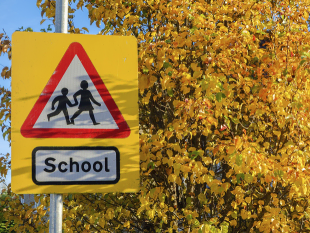Returning to School: Your Questions Answered

All pupils are to return to school at the start of this term with schools implementing a range of protective measures as set out in our guidance, first published in July.
Today, we look at some of the most common questions about young people returning to school.
Why is it so important that pupils are back in school?
Some pupils are returning to school this week but most are returning next week. We know school is the best place for children to be, because it’s vital for their education, development and wellbeing. The Prime Minister has set out that getting children back to school is a matter of national importance so they can learn and be with their teachers and friends and the Education Secretary, Gavin Williamson, has made clear that this has been the Department’s goal since scientific and medical advice indicated it would be safe to do so.
The Chief Medical Officers of all four UK home nations have set out that the risks associated with staying away from school are greater than the risk of contracting the virus. They have pointed to multiple sources of evidence showing a lack of schooling increases inequalities, affects the life chances of children and can intensify physical and mental health issues.
We know this is what parents want too – with ONS data showing 90% of parents are likely to send their children back to school in September.
What do the safety measures look like?
In developing our guidance for schools we have always used the best available scientific and medical evidence, and that will continue to be the case as we move through our response to the pandemic.
Endorsed by Public Health England, all schools have been asked to implement the protective measures set out in the ‘system of controls’ which, alongside their own risk assessments, will help to significantly reduce the risk of transmission. Some of these protective measures include:
- Minimising contacts and maintaining distance as far as possible, for example by keeping children in consistent groups and minimising mixing with others
- Introducing enhanced cleaning, reducing the used of shared items, and utilising outdoor space
- Cleaning hands more often than usual and ensuring good respiratory hygiene
What do scientists say?
Public Health England has been clear that evidence so far indicates that schools do not appear to be a primary driver of coronavirus infections in the community.
In fact, Chief Medical Officer Professor Chris Whitty said that children are more likely to be harmed by not returning to school next week than if they catch coronavirus. The statement signed by all of the UK’s Chief Medical Officers, sets out that while there are no “risk-free” options, there are a number of key steps that can be taken to support the safe return to schools.
What happens if there is an outbreak in a school?
If there is an outbreak at the school, local health protection teams will work with the school to agree what action is needed. Usually, the school will not need to close fully. If it needs to close for some children, it will have a contingency plan in place so that your child’s education can continue. If your local area sees a spike in infection rates that is resulting in localised community spread, the government will decide what actions need to be taken.
In practice, this will mean that if a pupil tests positive for Covid-19 their contacts will be traced and those who they have been in contact with – likely to be some of those they are in a bubble with – will have to isolate for 14 days in line with the guidance.
How can I help prevent the spread of Covid 19 in my child’s school?
There are a number of important things parents can remember to help prevent the transmission of the virus in schools. These include:
- Walking to school where possible and not congregating at the gates
- Encouraging regular hand washing and good respiratory hygiene – making sure that all coughs and sneezes are caught in a tissue and that tissue is thrown in the bin as soon as possible
- Staying up to date with the Department’s guidance for parents and carers on the return to schools, colleges and early years settings
- Make sure you also understand and follow any advice your child’s school is offering
- Following Government advice if you or your child have any symptoms like a temperature, loss of taste and smell or a persistent cough
Parents should discuss their children’s return with their school if they have any questions. Speaking on Monday 24 August, School Standards Minister Nick Gibb told BBC Radio 4’s Today Programme: “If they’ve got extra concerns, that is a matter between the Headteacher and the family to make sure that their concerns are taken into account.
“But it is important – it’s a moral imperative – that young people are back in school, because what the Chief Medical Officers are saying now is that the risk of not being in school outweigh the very small risk of children being in school, particularly given all the control measures, the hygiene, the cleaning that’s taking place in our schools. There’s an absolute determination to make sure that schools are safe for the children and children want to be back.”












Responses